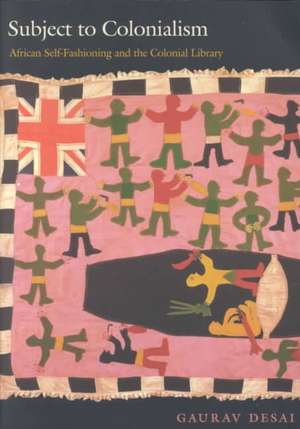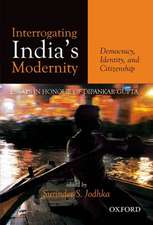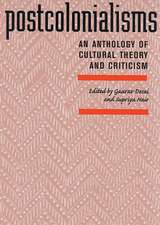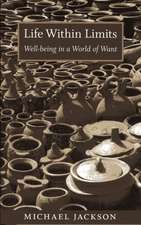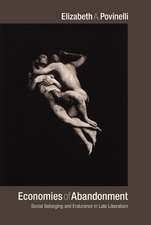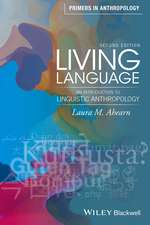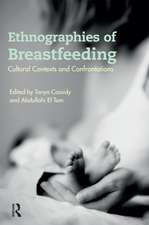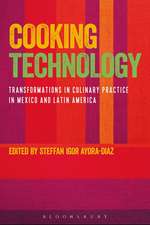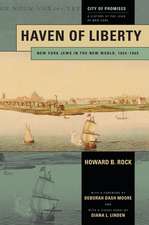Subject to Colonialism – African Self–Fashioning and the Colonial Library
Autor Gaurav Desaien Limba Engleză Paperback – 19 iun 2001
Presenting colonialism not as a singular, monolithic structure but rather as a practice frought with contradictions and tensions, Desai works to historicize the foundation of postcolonialism by decentering both canonical texts and privileged categories of analysis such as race, capitalism, empire, and nation. To achieve this, he focuses on texts that construct or reform--rather than merely reflect--colonialism, placing explicit emphasis on processes, performances, and the practices of everyday life. Reading these texts not merely for the content of their assertions but also for how they were created and received, Desai looks at works such as Jomo Kenyatta's ethnography of the Gikuyu and Akiga Sai's history of the Tiv and makes a particular plea for the canonical recuperation of African women's writing.
Scholars in African history, literature, and philosophy, postcolonial studies, literary criticism, and anthropology will welcome publication of this book.
Preț: 192.72 lei
Nou
Puncte Express: 289
Preț estimativ în valută:
36.89€ • 38.35$ • 30.59£
36.89€ • 38.35$ • 30.59£
Carte tipărită la comandă
Livrare economică 06-20 februarie 25
Preluare comenzi: 021 569.72.76
Specificații
ISBN-13: 9780822326410
ISBN-10: 0822326418
Pagini: 216
Dimensiuni: 156 x 221 x 22 mm
Greutate: 0.35 kg
Editura: MD – Duke University Press
ISBN-10: 0822326418
Pagini: 216
Dimensiuni: 156 x 221 x 22 mm
Greutate: 0.35 kg
Editura: MD – Duke University Press
Recenzii
"A thoroughly original work. Subject to Colonialism establishes Desai as a new authority in the study of African letters and thought across the twentieth century." - David William Cohen, author of The Combing of History "'Engaging' is how I would describe the effect of Desai's original reading of an original selection from the colonial library. With its unassuming honesty, clarity of style, and fine balance of argument and information-virtues not often displayed in 'postcolonial' writing-this book is bound to find the readers it deserves beyond the narrow circle of the experts and the converted."- Johannes Fabian, University of Amsterdam "Gaurav Desai has adopted in this study an original and productive approach to postcolonial literature by situating the discursive practices generated by the colonial encounter in a more comprehensive perspective than is usually offered in studies of this kind. He places the work of Africans such as the Kikuyu Jomo Kenyatta and the Tiv Akiga Sai in immediate relation to the western representations of Africa, seeing the literature produced on both sides of the colonial divide as an essential and constitutive part of the 'colonial library.' This comes to define in his interpretation an area of contending discourses, so that what Desai presents in this book is nothing less than Bakhtin's 'logosphere,' in the specific context of the colonial situation."- F. Abiola Irele, Ohio State University [We do have permission to shorten this.]
"A thoroughly original work. Subject to Colonialism establishes Desai as a new authority in the study of African letters and thought across the twentieth century." - David William Cohen, author of The Combing of History "'Engaging' is how I would describe the effect of Desai's original reading of an original selection from the colonial library. With its unassuming honesty, clarity of style, and fine balance of argument and information-virtues not often displayed in 'postcolonial' writing-this book is bound to find the readers it deserves beyond the narrow circle of the experts and the converted."- Johannes Fabian, University of Amsterdam "Gaurav Desai has adopted in this study an original and productive approach to postcolonial literature by situating the discursive practices generated by the colonial encounter in a more comprehensive perspective than is usually offered in studies of this kind. He places the work of Africans such as the Kikuyu Jomo Kenyatta and the Tiv Akiga Sai in immediate relation to the western representations of Africa, seeing the literature produced on both sides of the colonial divide as an essential and constitutive part of the 'colonial library.' This comes to define in his interpretation an area of contending discourses, so that what Desai presents in this book is nothing less than Bakhtin's 'logosphere,' in the specific context of the colonial situation."- F. Abiola Irele, Ohio State University [We do have permission to shorten this.]
"A thoroughly original work. Subject to Colonialism establishes Desai as a new authority in the study of African letters and thought across the twentieth century." - David William Cohen, author of The Combing of History "'Engaging' is how I would describe the effect of Desai's original reading of an original selection from the colonial library. With its unassuming honesty, clarity of style, and fine balance of argument and information-virtues not often displayed in 'postcolonial' writing-this book is bound to find the readers it deserves beyond the narrow circle of the experts and the converted."- Johannes Fabian, University of Amsterdam "Gaurav Desai has adopted in this study an original and productive approach to postcolonial literature by situating the discursive practices generated by the colonial encounter in a more comprehensive perspective than is usually offered in studies of this kind. He places the work of Africans such as the Kikuyu Jomo Kenyatta and the Tiv Akiga Sai in immediate relation to the western representations of Africa, seeing the literature produced on both sides of the colonial divide as an essential and constitutive part of the 'colonial library.' This comes to define in his interpretation an area of contending discourses, so that what Desai presents in this book is nothing less than Bakhtin's 'logosphere,' in the specific context of the colonial situation."- F. Abiola Irele, Ohio State University [We do have permission to shorten this.]
Notă biografică
Textul de pe ultima copertă
"Gaurav Desai has adopted in this study an original and productive approach to postcolonial literature by situating the discursive practices generated by the colonial encounter in a more comprehensive perspective than is usually offered in studies of this kind."--F. Abiola Irele, Ohio State University
Cuprins
Acknowledgments
Introduction: Dangerous Supplements
1. “Race,” Rationality, and the Pedagogical Imperative
2. Dangerous Liaisons? Frustrated Radicals, Master Professionals
3. Colonial Self-Fashioning and the Production of History
Coda
Bibliography
Index
Introduction: Dangerous Supplements
1. “Race,” Rationality, and the Pedagogical Imperative
2. Dangerous Liaisons? Frustrated Radicals, Master Professionals
3. Colonial Self-Fashioning and the Production of History
Coda
Bibliography
Index
